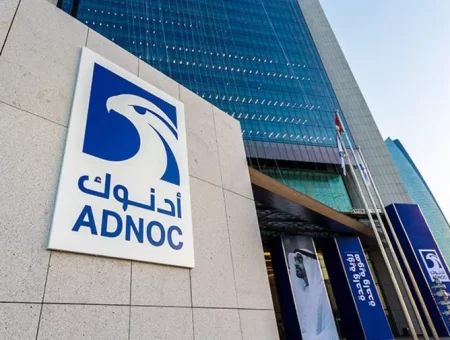 Oscarline Onwuemenyi
Oscarline Onwuemenyi
09 February 2017, Sweetcrude, Abuja – The Central Bank of Nigeria (CBN) yesterday disclosed that the federal government would invest about $50 billion in the development of a domestic biofuel industry which would serve as an alternative energy source for Nigeria.
It said the $50 billion biofuel fund would be contributed by different government agencies and development banks including the Bank of Industry (BoI), Bank of Agriculture (BOA) and Development Bank of Nigeria (DBN), that are relevant to the development of a vibrant domestic biofuel industry for Nigeria.
The Governor of CBN, Mr. Godwin Emefiele, said this at a workshop on biofuel development in Nigeria.
He was however represented by Mr. Lawrence Odeh, an official of the bank’s Research Department.
Emefiele noted that the fund would provide credit facilities on favourable terms to the domestic biofuel industry.
Also Resd: NNPC, Kebbi to build 84m litres biofuel plant
The workshop was organised in Abuja by the Petroleum Products Pricing Regulatory Agency (PPPRA).
It also had the Minister of State for Petroleum Resources, Dr. Emmanuel Ibe Kachikwu in attendance.
Kachikwu was represented by his Technical Adviser, Dr. Tim Okon, and he said that the government would provide the domestic biofuel industry with incentives to enable it to become a net income earner for the country.
Emefiele in his speech explained that in addition to earning very good income from a vibrant domestic biofuel industry, Nigeria could also rely on it to provide her alternative clean fuel, reduce her level of fuel importation, and conserve her foreign exchange.
He said: “Fossil fuels have been and will continue to be the dominant source of energy for sometimes, but this category of fuels are non-renewable and raise environmental concerns because they pollute the environment while others are renewable, non-polluting and therefore regarded as clean, thus, they present a viable alternative to fossil fuel and if properly harnessed can be very beneficial.”
“Nigeria potentially have a global competitive advantage to be a major player in the industry. In the phase of growing global concerns for protecting the environment, funding biofuel development as a commercial venture is becoming a developmental agenda, to that extent, the scope of funding sources have become variable.”
“On the domestic front, it is important to note that the Nigerian biofuel policy and incentives draft document has outlined funding arrangements and incentives arrangements for firms involved in biofuel production.
“Government envisages equity funding arrangements to be known as biofuel industry equity fund of $50 billion and to be jointly funded by parastatals and development banks including the Bank of Industry, Bank of Agriculture, and Development Bank of Nigeria,” Emefiele stated.
He added: “When established, the fund is expected to provide credit on favourable terms to meet the peculiarities of the industry in Nigeria.”
Similarly, Kachikwu explained that the biofuel policy which stakeholders are reviewing was designed to help Nigeria take advantage of the potentials in her agricultural sector to create a biomass-based fuel economy.
He noted that the policy will enable the biofuel industry work hand-in-hand with the country’s petroleum industry to sustain production and distribution of bioethanol and biodiesels across the country.
Speaking on the rationale for the workshop, the Acting Executive Secretary of PPPRA, Mr. Victor Shidok, said the agency took up the government’s renewed interest in commercialising the biofuel industry, to bring stakeholders to review the policy which he said was initially import based.
He added that the PPPRA was coordinating the review of the policy and had ensured that stakeholders’ inputs were taken to achieve acceptability.
Shidok also said the reviewed biofuel policy would emphasis on domestic market and self-sufficiency in biofuel production.



